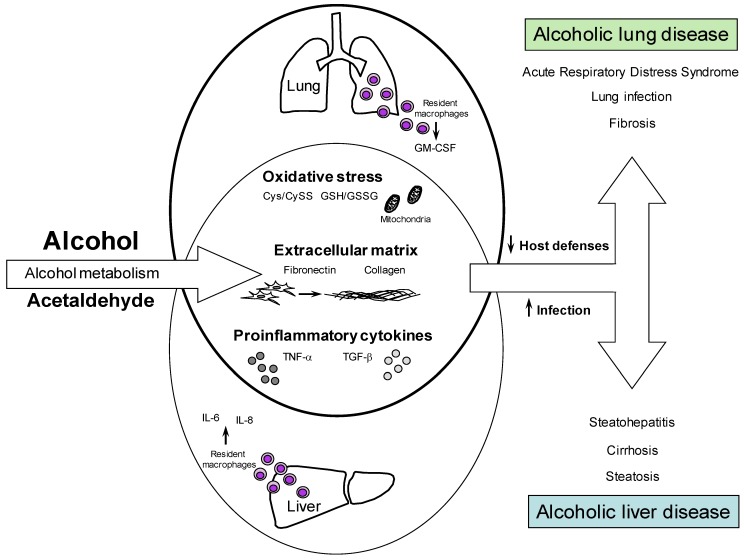Figure 1.
Effect of alcohol on the gut/liver/lung axis. Alcohol induces tissue damage in liver and lung through shared mechanisms of action that promote the progression of alcoholic liver and lung disease. Resident macrophages found in both the liver and lung play key roles in mediating inflammatory responses including the induction of cytokines such as IL6, IL-8, TNF-α, TGF-β, and GM-CSF. Activation of tissue remodeling, with enhanced deposition of extracellular matrix components like fibronectin and collagen, and increased oxidative stress also contribute to tissue injury and organ dysfunction. Ultimately, alcohol-induced damage to both organs results in the impairment of host defense mechanisms and susceptibility to infection, tissue injury and disease.

